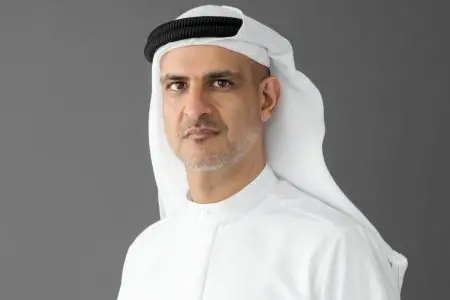PHOTO
Roads and Transport Authority – Nashwan Attaa’ee: Dubai’s Roads and Transport Authority (RTA), in cooperation with ENOC Group, has recently completed the installation of Vehicle Identification Pass (ViP) through Radio-Frequency Identification (RFID) technology in more than 1300 public buses. The technology will be operational in five RTA bus depots in Dubai. The step follows the successful implementation of the trial phase conducted on 190 vehicles last year.
The technology requires the installation of a smart tag on the cap of the fuel tank and a reading device on the nozzle of the fuel pump. It ensures that each bus will be refilled with the correct fuel type, as prescribed beforehand by RTA. The step will enable RTA’s team to put limits, as needed, on the refuelling of vehicles and bus fleet through the e-Fleet Management System. This will help set limits for refuelling based on quantity, cost, time and zone; which will ensure higher efficiency in tracking the fuel consumption and the operational efficiency of the fleet.
The CEO of RTA’s Public Transport Agency Ahmed Bahrozyan was delighted with the cooperation with a leading energy provider such as ENOC. He praised the step considering it an important contribution to RTA’s strategic initiatives for uplifting the performance of public transport means, including buses.
“RTA is keen to use the latest technologies in improving its operations and services with the aim of utilising resources,” he concluded.
“As a leading national group in the energy sector, we are always keen on providing innovative technologies to our partners who play an important role in supporting the infrastructure of UAE. RTA is the underpinning party of integrated and sustainable transit systems in Dubai. We assign considerable attention to supporting RTA’s successes by consolidating its operational processes and enabling teams to keep track of the bus fleet fuel consumption. This exercise, we believe, will ensure the smooth flow of public transport processes and the efficient running of buses,” said Saif Humaid Al Falasi, CEO of ENOC.
The technology enables the tracking of bus refuelling through a user-friendly touch-screen with simple options. It ensures the provision of comprehensive information and easy access to stocktaking data. The project eliminates the risks of fraud as the sophisticated Fuel Matic System shuts off the fuel supply once the fueling nozzle is removed from the vehicle’s tank.
The RFID technology has several other benefits such as reading the odometer, which enables depot managers to access reports of kilometres done by each bus, thus allowing them to analyse the fuel consumption per vehicle. The technology enables the RTA to centralise, standardise the refueling requests, and accordingly cut short the time needed for refuelling the entire fleet.
-Ends-
© Press Release 2019Disclaimer: The contents of this press release was provided from an external third party provider. This website is not responsible for, and does not control, such external content. This content is provided on an “as is” and “as available” basis and has not been edited in any way. Neither this website nor our affiliates guarantee the accuracy of or endorse the views or opinions expressed in this press release.
The press release is provided for informational purposes only. The content does not provide tax, legal or investment advice or opinion regarding the suitability, value or profitability of any particular security, portfolio or investment strategy. Neither this website nor our affiliates shall be liable for any errors or inaccuracies in the content, or for any actions taken by you in reliance thereon. You expressly agree that your use of the information within this article is at your sole risk.
To the fullest extent permitted by applicable law, this website, its parent company, its subsidiaries, its affiliates and the respective shareholders, directors, officers, employees, agents, advertisers, content providers and licensors will not be liable (jointly or severally) to you for any direct, indirect, consequential, special, incidental, punitive or exemplary damages, including without limitation, lost profits, lost savings and lost revenues, whether in negligence, tort, contract or any other theory of liability, even if the parties have been advised of the possibility or could have foreseen any such damages.




















